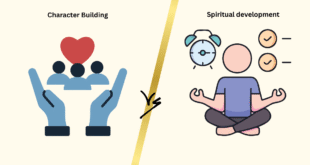Dr. Muhammad Younus Khalid- Tarbiyah Parenting Coach and Family Relationship Counsellor
Choosing a life partner is one of the most important decisions you will ever make. It’s not just about romance, attraction, or lifestyle — it’s about sharing your faith, values, and vision for life. Your spouse will influence your emotional health, spiritual growth, and even your relationship with Allah (SWT).
In today’s world of quick decisions and fleeting emotions, Prophet Muhammad’s (PBUH) teachings stand as timeless guidance. His wisdom offers a balance between spiritual compatibility, emotional maturity, and practical living — principles that can help anyone choose the right life partner.
So, how do you choose the right person for you? Let’s explore 7 key points, deeply rooted in prophetic wisdom and supported by modern psychology.
-
Choose for Deen (Religious Commitment and Character)
The Prophet Muhammad (PBUH) said:
“A woman is married for four reasons: for her wealth, for her lineage, for her beauty, and for her religion. So, marry the one who is religious, may your hands be rubbed with dust (may you prosper).” (Sahih al-Bukhari and Muslim)
This hadith applies to both men and women. The Prophet’s words highlight that faith and character are the foundation of a strong marriage. Wealth, looks, and status may fade, but a person’s taqwa (God-consciousness) and akhlaq (character) will remain.
When you choose someone who fears Allah and respects people, your home becomes filled with peace and barakah (blessing).
Modern insight:
Studies show that couples who share common spiritual or moral values experience deeper trust and long-term satisfaction. Faith creates an anchor when life’s storms come.
Ask yourself:
- Does this person remind me of Allah?
- Do they handle conflict with patience and respect?
- Are they kind to others, especially those who can’t benefit them?
-
Look for Emotional Maturity and Responsibility
A successful marriage needs more than love — it requires emotional intelligence. The Prophet (PBUH) once said:
“The most perfect of believers in faith are those best in manners and kindest to their wives.” (Tirmidhi)
This hadith shows that emotional control, patience, and kindness are part of true faith. A good partner is not one who never disagrees, but one who handles differences with maturity.
Signs of emotional maturity include:
- Taking responsibility instead of blaming others.
- Controlling anger.
- Listening empathetically.
- Apologizing when wrong.
Modern perspective:
Psychologists emphasize that emotional intelligence (EQ) — the ability to manage emotions — predicts relationship success more than IQ or attraction.
Tip: During engagement or early conversations, observe how they speak about others, deal with stress, and respond to criticism.
-
Assess Compatibility in Values and Vision
Islam encourages choosing a spouse who shares your life purpose and values. The Qur’an says:
“And among His signs is that He created for you mates from among yourselves that you may find tranquility in them; and He placed between you affection and mercy.” (Surah Ar-Rum 30:21)
Tranquility (sukoon) comes when both partners align in faith, goals, and values. It doesn’t mean being identical — it means respecting and supporting each other’s journey.
Key areas of compatibility to explore:
- Faith and level of religious practice.
- Family expectations and cultural understanding.
- Financial habits and work-life balance.
- Long-term goals — education, children, career, location.
Practical advice:
Before marriage, talk openly about expectations:
- “What does an ideal marriage mean to you?”
- “How do you manage disagreements?”
- “What are your goals for the next 10 years?”
This transparency builds trust and prevents future misunderstandings.
-
Prioritize Good Manners and Character (Akhlaq)
The Prophet (PBUH) said:
“If someone with whose religion and character you are pleased comes to you (for marriage), then marry him.” (Tirmidhi)
Good character (akhlaq) is a reflection of inner piety. A person may appear religious outwardly, but if they are rude, arrogant, or selfish, their faith is incomplete.
Qualities to look for:
- Honesty and integrity.
- Humility and gratitude.
- Respect for elders and compassion for the weak.
- Good communication and calm temperament.
Remember:
Character shows up not in how a person treats you when they’re happy, but in how they behave when they’re upset.
-
Seek Family and Community Involvement
In Islam, marriage is not just between two individuals — it’s a union of two families. The Prophet (PBUH) encouraged community and family participation in this sacred decision.
“Nikah is my sunnah. Whoever turns away from my sunnah is not from me.” (Ibn Majah)
Getting family input doesn’t mean blind obedience, but balanced wisdom. Elders can see red flags that young hearts may overlook. They also provide emotional and moral support for a healthy marriage.
Tip:
- Discuss family expectations before engagement.
- Involve trusted mentors or scholars in the process.
- Avoid secret relationships that lack transparency and accountability.
Modern perspective:
Sociologists find that marriages with supportive families tend to be more stable and less stressful in the long run.
-
Consider Health, Attraction, and Lifestyle Compatibility
Islam encourages looking at practical aspects too. The Prophet (PBUH) advised companions to see the person they intend to marry to ensure mutual attraction:
“When one of you proposes to a woman, if he is able to look at what will induce him to marry her, let him do so.” (Abu Dawood)
This hadith highlights the importance of physical attraction and comfort — not as the main priority, but as a natural and necessary component of marital happiness.
Practical areas to evaluate:
- Physical and emotional health.
- Lifestyle habits — sleep, food, exercise.
- Level of neatness, discipline, and personal hygiene.
- How they manage money, work, and leisure.
Balance is key:
Islam encourages you to be realistic. You’re not looking for perfection — you’re seeking compatibility and commitment.
-
Make Istikhara and Trust in Allah’s Plan
After you’ve done your part — researched, asked, evaluated — place your trust in Allah (SWT). The Prophet (PBUH) taught the dua of Istikhara, a prayer for divine guidance in important decisions.
“O Allah, if this matter is good for me in my religion, my livelihood, and my affairs, then decree it for me, make it easy for me, and bless it for me…” (Sahih Bukhari)
Istikhara brings peace of heart and clarity of mind. Sometimes, what you desire may not be what’s best for you, and what seems disappointing may lead to unexpected blessings.
Practical advice:
- Perform Istikhara sincerely for 7 days.
- Seek counsel from scholars and trusted elders.
- Watch how events unfold — ease or difficulty is also a sign.
Remember: The right person may not be the perfect person — but they will bring you closer to Allah, peace, and purpose.
Bonus Tip: Build Yourself Before You Seek Someone Else
Before you look for “the right one,” become the right one. Work on your emotional health, faith, discipline, and communication. A strong marriage is built by two strong individuals.
“The believer is a mirror of the believer.” (Abu Dawood)
If you want a kind, faithful, and mature partner — develop those same traits in yourself. Marriage is not just about finding happiness; it’s about creating it together.
Conclusion: A Marriage of Faith and Tranquility
Choosing a life partner is one of the greatest tests and blessings in life. When guided by the Prophet’s (PBUH) timeless wisdom, this journey becomes sacred. His teachings remind us that marriage is not just a contract — it’s a bond of mercy, trust, and growth.
In summary, here are the 7 timeless points on How to Choose a Life Partner for You:
- Prioritize faith and character.
- Seek emotional maturity.
- Align your values and vision.
- Focus on good manners (akhlaq).
- Involve family and community.
- Ensure health and lifestyle compatibility.
- Make Istikhara and trust Allah’s plan.
When you follow these principles with sincerity, Allah will guide your heart toward what is best.
“And whoever puts his trust in Allah, then He is sufficient for him.” (Qur’an 65:3)
 Edutarbiyah English Blog of Parenting and Tarbiyah
Edutarbiyah English Blog of Parenting and Tarbiyah



